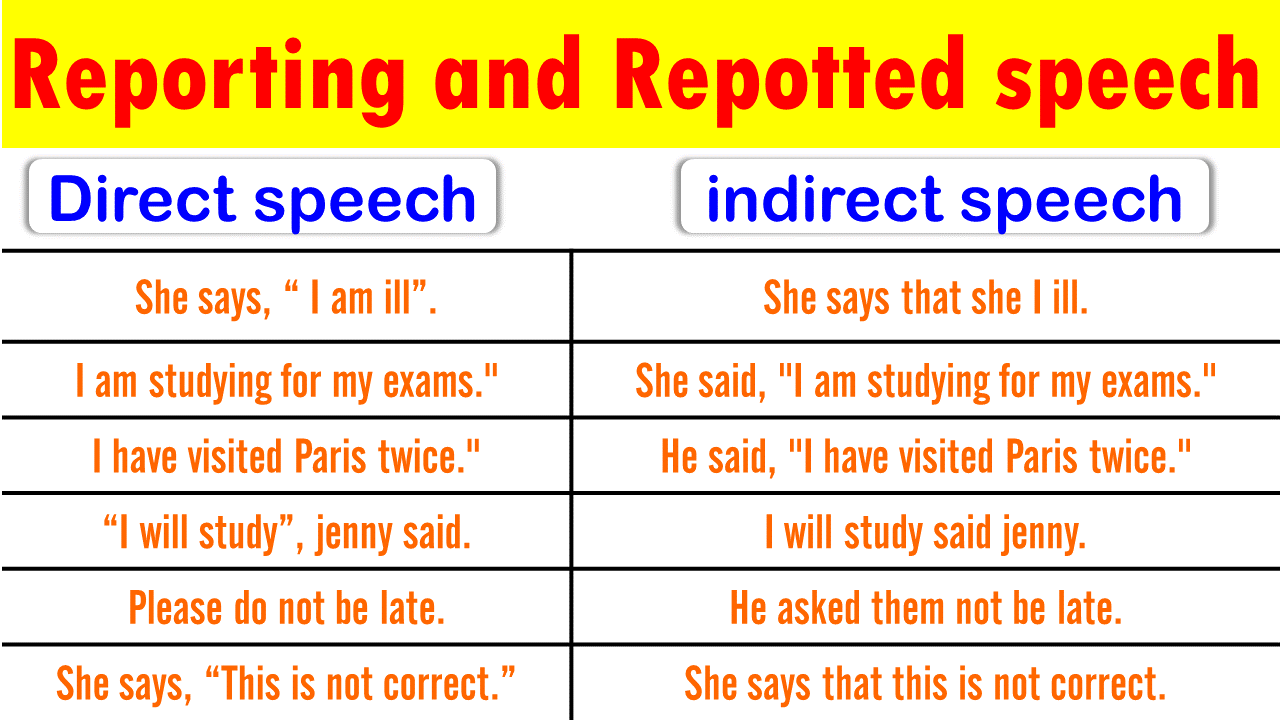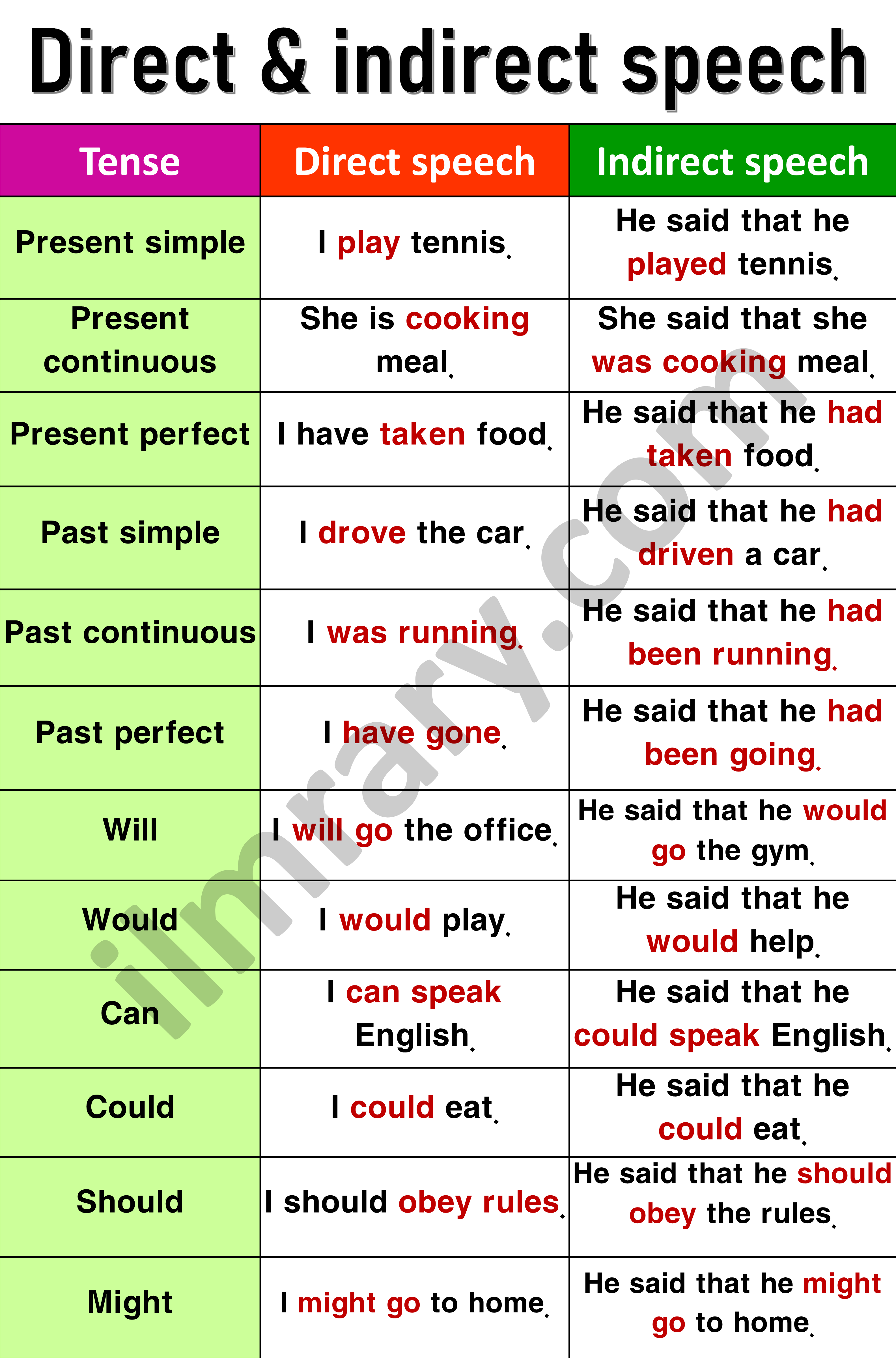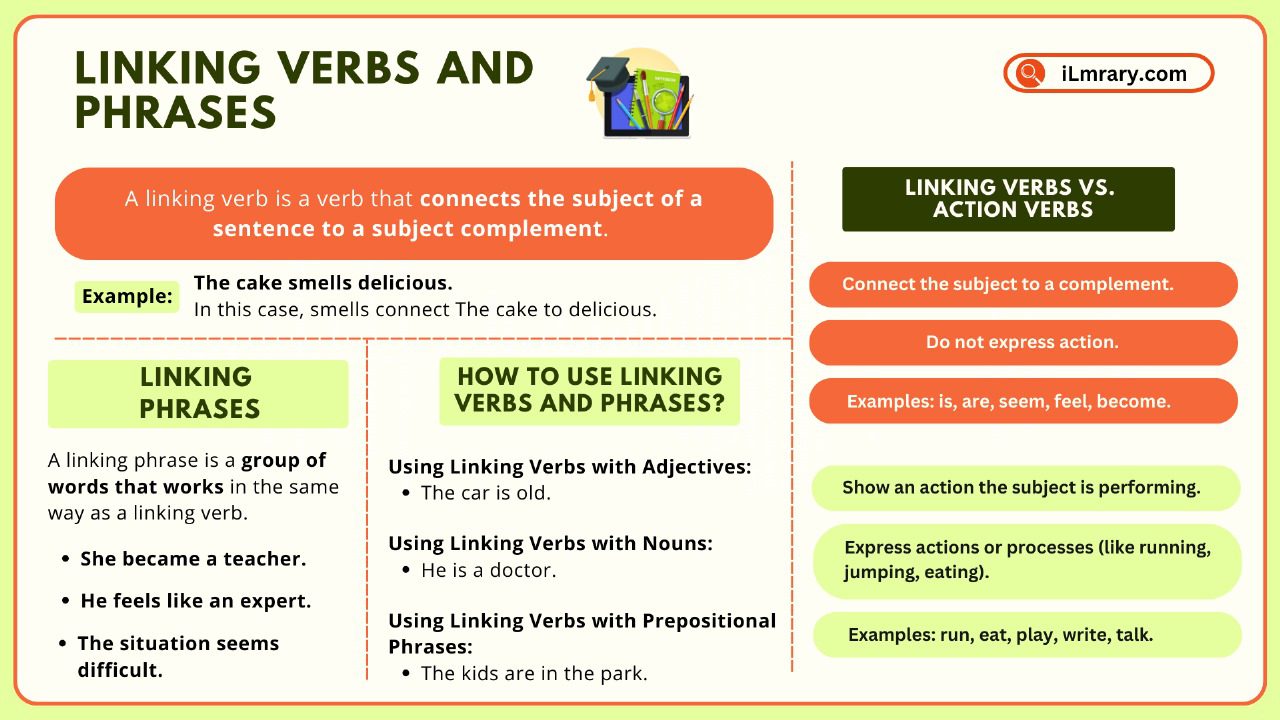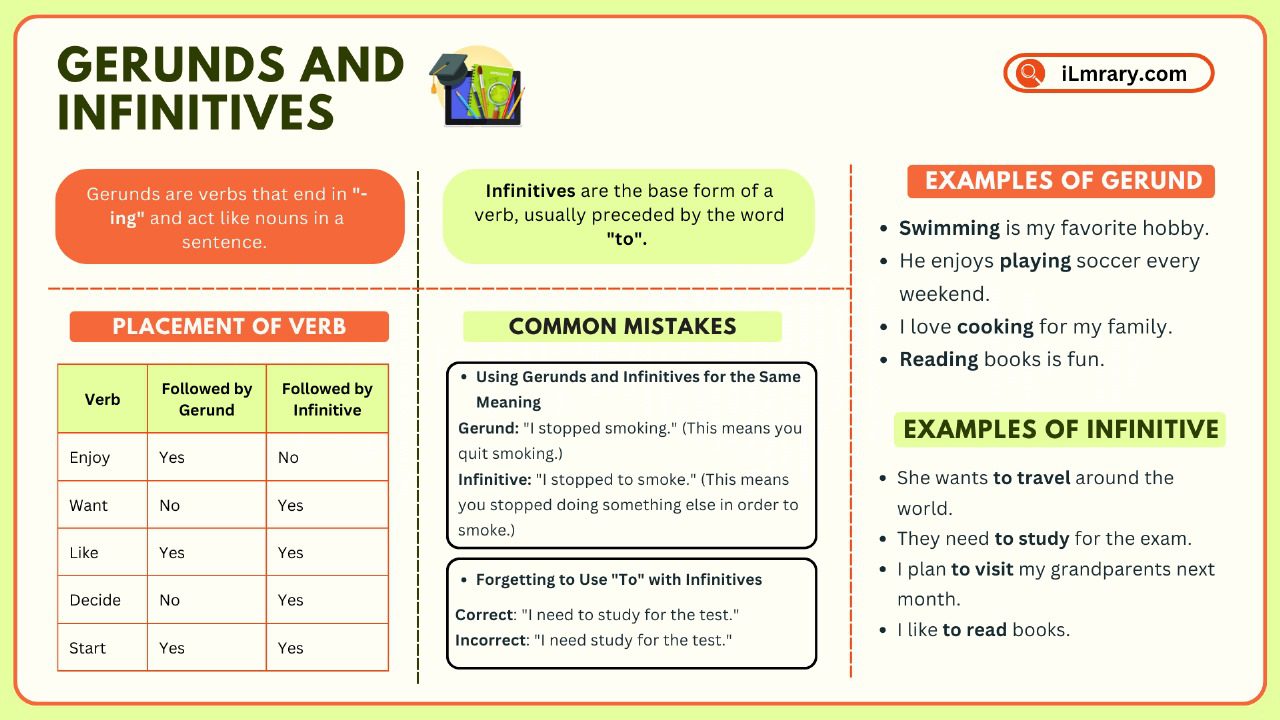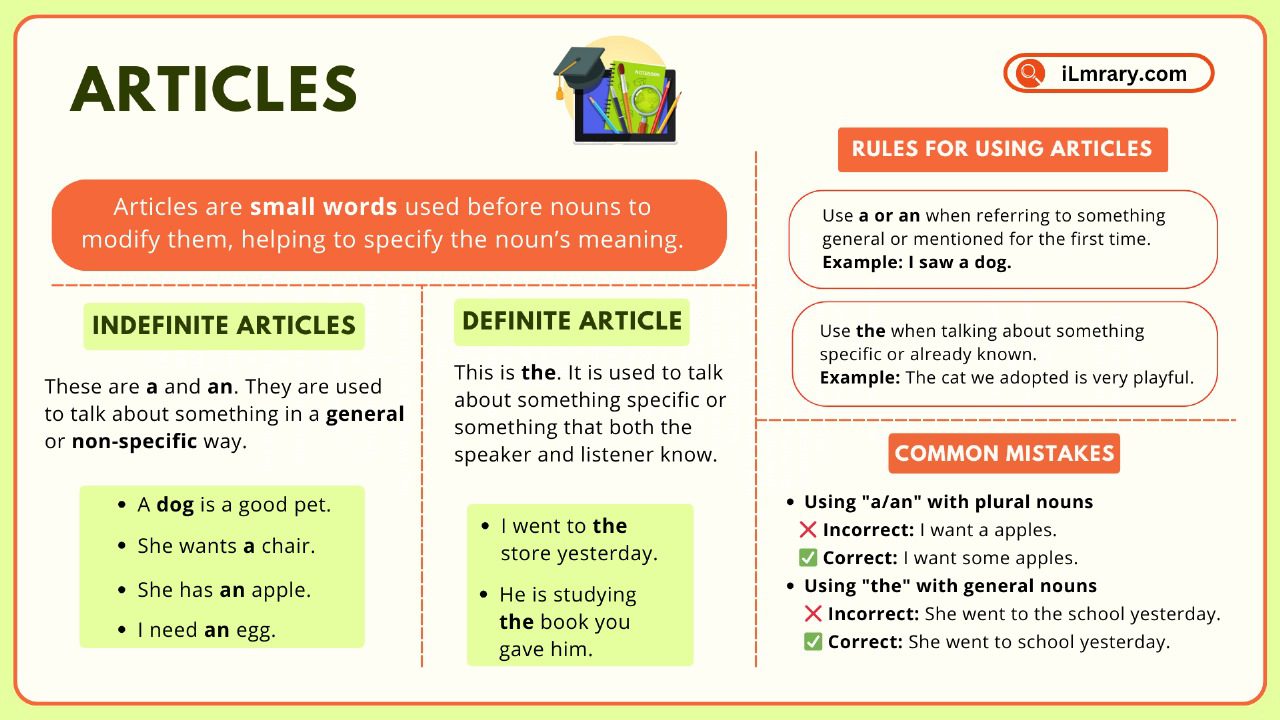Contents
What is Direct and Indirect Speech?
Direct Speech:
It involves quoting the exact words spoken by someone. These words are typically marked by quotation marks. For example:
Mary said, I love ice cream.
In this sentence, the words inside “love ice cream” convey exactly what Mary said.
Indirect Speech:
It reports what someone has said without using their exact words. Pronouns, verb tense, and time references often change. For instance:
Mary said that she loved ice cream.
Here, the exact wording is not used, but the message remains clear.
Key Differences Between Direct and Indirect Speech
| Aspect | Direct Speech | Indirect Speech |
|---|---|---|
| Exact Words | Uses exact words with quotation marks. | Paraphrases the original message. |
| Tense Changes | Retains the original tense. | Tense usually shifts back. |
| Pronoun Usage | Original pronouns remain unchanged. | Pronouns adapt to the speaker’s context. |
| Time References | Unchanged. | Adjusts to the reporting moment. |
Rules for Changing Direct to Indirect Speech
Transforming sentences from direct to indirect speech involves following some basic rules. Below are the key changes:
General Changes:
- Verb Tense:
Present tense in direct speech changes to past tense in indirect speech.
- Pronouns:
Pronouns adjust based on the context of the sentence.
- Time and Place References:
Words like “today” change to “that day” and “here” becomes “there.”
Transforming Tenses in Direct and Indirect Speech
Here is how tenses transform:
| Direct Speech | Indirect Speech |
| Present Indefinite: I enjoy music. | He said that he enjoyed music. |
| Present Continuous: I am reading a book. | She said that she was reading a book. |
| Present Perfect: I have finished my work. | He said that he had finished his work. |
| Future Indefinite: I will call you. | She said that she would call me. |
Transforming Different Tenses: Examples and Explanations
Present Indefinite to Past Indefinite
Direct: I visit my grandparents every weekend.
Indirect: He said that he visited his grandparents every weekend.
The present tense verb “visit” changes to the past tense “visited” to reflect the reported context.
Present Continuous to Past Continuous
Direct: I am studying for my exams.
Indirect: She said that she was studying for her exams.
The verb “am studying” becomes “was studying” to match the shift from direct to indirect speech.
Present Perfect to Past Perfect
Direct: I have visited Paris twice.
Indirect: He said that he had visited Paris twice.
The present perfect “have visited” becomes past perfect “had visited” in indirect speech.
Future Indefinite to Future-in-the-Past
Direct: I will visit my parents next week.
Indirect: She said that she would visit her parents the following week.
The future tense “will” changes to “would,” and “next week” becomes “the following week.”
Common Mistakes in Direct and Indirect Speech
1: Retaining the Original Tense
Incorrect: He said he is happy. ❌
Correct: He said he was happy. ✔️
Tense needs to shift back in indirect speech.
2: Not Changing Pronouns
Incorrect: She said I will come. ❌
Correct: She said that she would come. ✔️
The pronoun “I” changes to “she” to fit the context.
3: Misinterpreting Time References
Incorrect: He said he would finish this today. ❌
Correct: He said he would finish that that day. ✔️
Words like “today” change to “that day.”
Practical Examples for Practice
| Tense | Direct Speech | Indirect Speech |
| Present Indefinite | I enjoy cricket. | He said that he enjoyed cricket. |
| Present Perfect Continuous | I have been working on this project. | He said that he had been working on that project. |
| Future Continuous | I will be watching TV. | She said that she would be watching TV. |
| Future Perfect Continuous | I will have been working for five years. | He said that he would have been working for five years. |
Why Learn Direct and Indirect Speech?
Mastering direct and indirect speech improves your ability to:
- Communicate Clearly: You can effectively convey spoken messages.
- Write Better: Essential for storytelling, academic writing, and professional communication.
- Adapt Tone: Makes your speech or writing formal or informal as needed.
FAQs
1. What is the main difference between direct and indirect speech?
Direct speech quotes the exact words spoken, while indirect speech paraphrases the message, changing pronouns, tense, and time references.
2. When do we use indirect speech?
We use indirect speech when reporting someone’s words without quoting them exactly, often in storytelling, reporting, or formal writing.
3. How do pronouns change in indirect speech?
Pronouns change based on the speaker’s context. For example, “I” becomes “he” or “she” depending on who is being referenced.
4. Are there exceptions to tense changes in indirect speech?
Yes, when reporting universal truths or facts, the tense remains unchanged. For example, He said that the sun rises in the east.
5. Can we omit “that” in indirect speech?
Yes, “that” is optional in many cases. For example, He said he was tired is equally correct as He said that he was tired.
Direct and Indirect Speech of All English Tenses | Rules of Direct and Indirect
You May also Like


